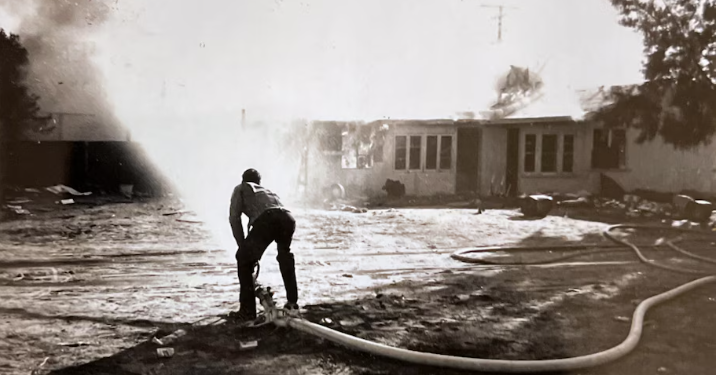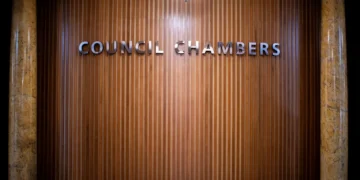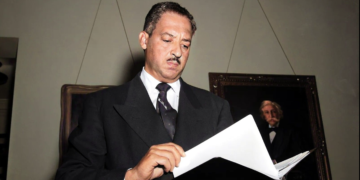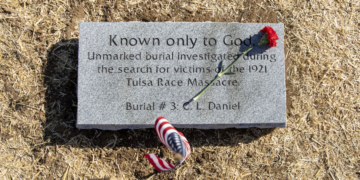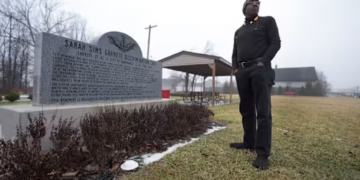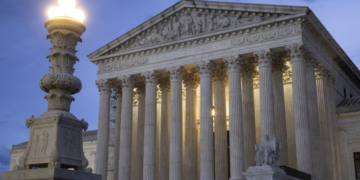Sep 1, 2024 Story by: Editor
In the 1950s and 1960s, residents of Section 14, a predominantly Black and Latino neighborhood in Palm Springs, California, witnessed the destruction of their homes by city officials. This area, home to marginalized communities, was bulldozed to make way for new development as Palm Springs grew into a glamorous destination. In 1968, the California attorney general’s office referred to the event as a “city-engineered holocaust,” underscoring its severity.
Section 14’s story, similar to the decimation of Black communities in Tulsa’s Greenwood District and Rosewood, Florida, is not as straightforward. Although White city officials orchestrated the destruction, the Agua Caliente Band of Cahuilla Indians, who owned the land, signed off on the demolition, introducing complex racial dynamics between two historically disadvantaged groups.
Now, decades later, former residents and their descendants are seeking millions in reparations. However, the question remains: who should be responsible for paying—the city or the tribe?
Adding to the complexity is the deep-rooted relationship between Palm Springs’ Black and Latino residents and the Agua Caliente tribe. When these families arrived in the early 20th century, the tribe was one of the few landowners willing to rent to them. While the demolition of Section 14 harmed Black and Latino communities, it also marked a victory for Native American sovereignty. The tribe, which successfully lobbied for land rights, transformed their economic fortunes, now owning valuable real estate in the city.
“It was this amazing all-women tribal council that goes to Washington and lobbies the House, Senate, and president,” said Renee Brown, associate curator of the Palm Springs Historical Society. “Suddenly, the land that was once worthless became worth millions.”
Areva Martin, a lawyer representing Section 14 survivors and descendants, has focused on holding the city accountable. She argued that Palm Springs employees, including its fire department, razed and burned homes. In contrast, some argue that the tribe benefited the most from the destruction and should be responsible for compensation as well.
The city offered $4.3 million in April to settle the claims, but Martin rejected the offer. In July, she countered with a $42 million settlement, which includes compensation for displaced residents, plans for a museum, a racial healing center, and land for affordable housing. However, Palm Springs Mayor Jeffrey Bernstein expressed doubts that the city council would raise its offer beyond $4.3 million, favoring programmatic solutions instead.
“My personal belief is that programmatic efforts are going to be the most meaningful,” Bernstein said, mentioning a community land trust to help build generational wealth.
Some, like Carl McPeters, a Section 14 advocate, believe the tribe should also be involved in reparations. However, many former Black residents of Palm Springs, including McPeters, maintain a sense of affinity for the tribe and are reluctant to pursue legal action against them.
“They were the only people who would rent to Black people back then,” McPeters explained. “We befriended them because we were in the same pot.”
Yet, the tribe has prospered, while Palm Springs’ Black community continues to struggle. “They have made tremendous progress, and that has been their reparations,” McPeters said. “So if they receive reparations for the atrocities they endured, why shouldn’t we?”
For Pearl Devers, another former resident, the city’s actions were clear. “The city had a responsibility to notify its taxpaying, working citizens,” she said. “Instead, the city fire department came in and burned down our homes.”
The Agua Caliente tribe’s history in the Coachella Valley dates back over 5,000 years. Although federal laws limited their ability to develop their land for many years, President Dwight D. Eisenhower’s signing of the Indian Leasing Act in 1959 allowed the tribe to lease their land for up to 99 years, paving the way for long-term development.
Section 14’s destruction, which occurred in phases from 1959 to 1968, involved city employees who, in some cases, acted without proper eviction notices. Homes were bulldozed and burned, and personal belongings were even stolen during the process.
“I remember coming home from school and seeing buildings in ruins or ablaze,” recalled Devers, who was 12 at the time. “But what I remember most was my friends and neighbors slowly disappearing.”
Former Mayor Frank Bogert, who served during the destruction, once expressed concern about the area’s appearance. “I was scared that someone from Life magazine would come out, see the poverty, and write a story about it,” Bogert told the Los Angeles Times in 2001.
For decades, Section 14’s history was largely forgotten, until former residents and civil rights organizations sought an apology in 2000. Although Palm Springs city officials have uncovered more documentation in recent years indicating that residents were given eviction notices, Mayor Bernstein acknowledged the city’s moral obligation to its marginalized residents.
Today, Palm Springs grapples with how best to atone for its past. While the city has taken steps like removing a statue of Mayor Bogert due to his involvement in the destruction, the debate over reparations remains contentious. Some, like city human rights commission member Terrie Andrade, argue that the tribe should be part of the settlement process, given its role in Section 14’s redevelopment.
“Now we’re talking about a multimillion-dollar settlement,” Andrade said. “It’s out of control.”
However, Martin believes the city should take sole responsibility. “It was the city that engaged in the conduct,” she said. “Why put the onus on the oppressed to go after the tribe?”
As Palm Springs residents continue to reflect on the events of Section 14, Bernstein emphasized that most of the community supports efforts toward healing and remembrance. “Most of our city thinks that housing, economic development, healing, and remembrance is really the way forward,” he said. Source: Washington Post


